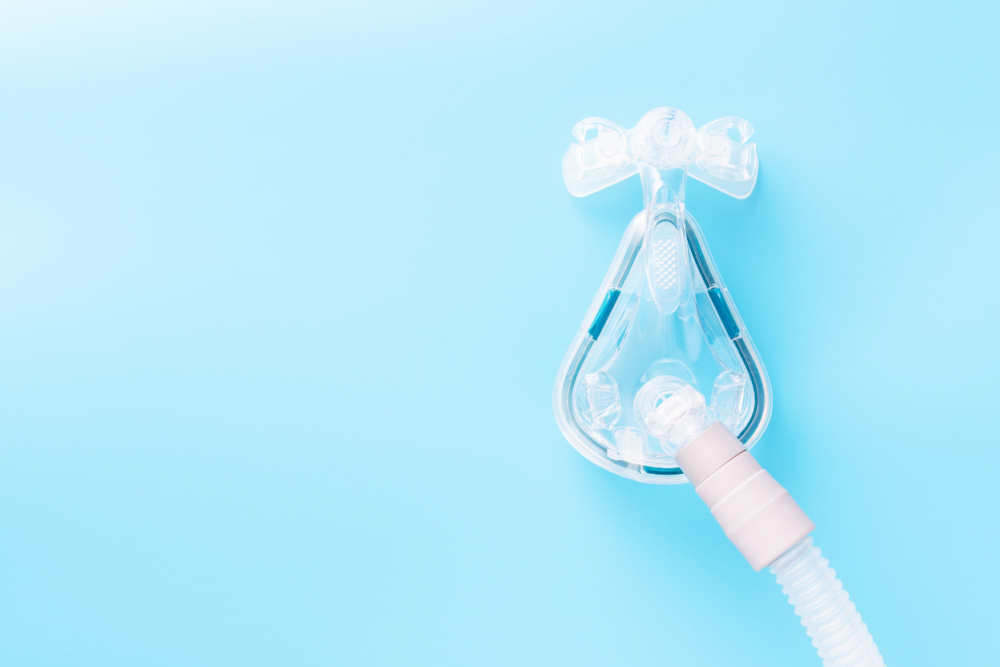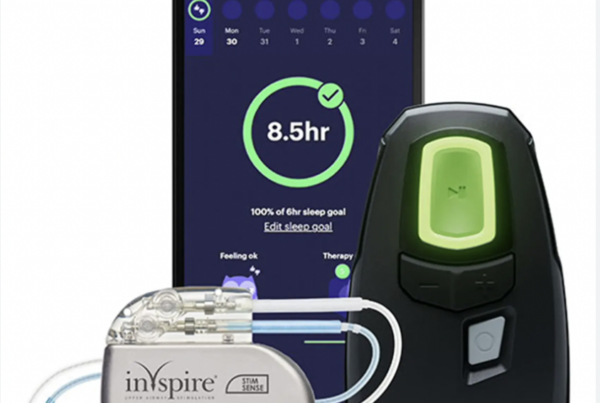Do you often wake up feeling even more exhausted than before you went to sleep? You’re certainly not alone in this struggle. This type of persistent exhaustion typically signals more than just bad sleep—it might be indicative of sleep apnea. Dental sleep medicine represents a crucial intersection between dentistry and sleep health, providing crucial interventions far beyond treating cavities and gum disease.
Dentists specializing in this field are pivotal, leveraging their expertise to both screen for and manage sleep disorders. They go beyond traditional dental roles; they are crucial facilitators of rejuvenating sleep. With specialized training under their belts, these professionals offer tailored treatments, including custom-fitted oral appliances that are often favored over traditional CPAP machines for their comfort and ease of use.
These devices are ingeniously designed to adjust the jaw or tongue’s position to maintain open airways throughout the night—a subtle yet significant modification that enhances breathing and enriches sleep quality. By identifying and addressing these often-overlooked conditions, dentists contribute more than just oral health care—they significantly improve overall health and transform lives, ensuring each night’s sleep genuinely restores.
Understanding Dental Sleep Medicine
What is Dental Sleep Medicine? This specialized field concentrates on managing sleep-related breathing disorders, such as snoring and obstructive sleep apnea (OSA), utilizing oral appliance therapy and sometimes upper airway surgery. Unlike traditional dentistry that focuses solely on teeth and gums, dental sleep medicine extends its reach to sleep, a fundamental component of overall health.
Dentists in this specialized area collaborate extensively with sleep physicians to devise personalized treatment plans for their patients. Leveraging their in-depth knowledge of the oral cavity, these dentists customize oral devices designed to keep the airway open throughout the night. Such critical interventions can drastically reduce the risks associated with sleep apnea, including heart disease, stroke, and chronic fatigue.
The aim of Dental Sleep Medicine goes beyond merely improving sleep; it enhances patients’ overall quality of life. By facilitating better sleep, dentists contribute significantly to their patients’ day-to-day energy, alertness, and mental clarity. In this field, even slight adjustments in oral appliance therapy can lead to substantial health benefits and improved daily performance.
Understanding Sleep Apnea
Sleep apnea is a prevalent but often underrecognized condition that profoundly affects an individual’s health and daily vitality. It involves frequent interruptions in breathing during sleep—events that can occur hundreds of times each night, typically without the sleeper’s awareness. These interruptions, called apneas, can vary in duration and often result in significant drops in body oxygen levels, leading to severe health consequences if untreated.
Types of Sleep Apnea
Sleep apnea manifests in two primary forms:
- Obstructive Sleep Apnea (OSA): This is the more prevalent type, characterized by a physical obstruction of the airway due to soft tissue collapsing at the back of the throat during sleep.
- Central Sleep Apnea: This type occurs when the brain does not send the proper signals to the muscles that control breathing, unlike OSA, which is caused by a physical blockage.
Recognizing the Symptoms of Sleep Apnea
The symptoms of sleep apnea are diverse and can significantly impact daily life:
- Persistent, loud snoring
- Noticeable pauses in breathing during sleep
- Extreme tiredness during the day, even after a full night’s sleep
- Morning headaches
- Trouble focusing during the day
- Mood swings, including feelings of depression or irritability
- Elevated blood pressure
- Sweating excessively at night
The Dangers of Ignoring Sleep Apnea
Ignoring sleep apnea can lead to serious health risks, including cardiovascular problems like high blood pressure, heart disease, and the potential for a stroke. The chronic sleep disruption caused by sleep apnea can also impair cognitive functions, affecting your ability to think clearly, concentrate, and make decisions. This heightened state of fatigue increases the risk of accidents at work or while driving.
Addressing sleep apnea is essential not just for improving sleep quality but also for safeguarding overall health and averting severe long-term complications.
Dentists’ Crucial Role in Sleep Medicine
Dentists are integral to managing sleep disorders, especially obstructive sleep apnea (OSA), leveraging their specialized skills in dental sleep medicine. They offer unique interventions that complement the treatments provided by traditional sleep specialists.
Unique Contributions of Dentists to Sleep Medicine:
- Early Signs Identification: Dentists often first identify potential sleep apnea signs during routine exams, noticing symptoms like worn teeth, a small jaw, or enlarged mouth and throat tissues.
- Specialized Training: Dentists in this specialty receive training specific to the dynamics of the airway, both awake and asleep, allowing them to collaborate effectively with sleep physicians in diagnosing and managing sleep-related breathing disorders.
- Custom Oral Appliances: Dentists often create and fit custom oral appliances, which are a popular alternative to CPAP machines for patients with mild to moderate OSA. These appliances adjust the jaw and tongue’s position to keep the airway open during sleep.
- Integrated Care Coordination: Dentists work closely with various healthcare providers, including sleep physicians, ENT specialists, and general practitioners, ensuring a well-rounded approach to treating sleep apnea.
- Ongoing Patient Care: Continuous management is vital. Dentists regularly follow up with patients to adjust oral appliances, monitor progress, and reassess symptoms to maintain the effectiveness of the treatment.
Through these contributions, dentists significantly enhance patient outcomes in sleep medicine, improving not just sleep quality but overall life quality.
Treatment Options in Dental Sleep Medicine
Dental sleep medicine offers a variety of treatments tailored to each patient’s specific needs for sleep-related breathing disorders. These range from custom-fitted oral appliances to innovative therapies:
- Mandibular Advancement Devices (MADs): Commonly used, these devices slightly advance the lower jaw to keep the airway open, reducing apnea events.
- Tongue Retaining Devices (TRDs): These keep the tongue forward to prevent airway blockage, suitable for patients who cannot use MADs.
- Vivos Treatment: An innovative approach addressing the root causes of sleep apnea. It uses a biomimetic oral appliance to permanently enhance airway space, typically worn daily for 12 to 24 months.
- Combination Therapy: Sometimes, combining treatments like CPAP machines with oral appliances or including surgical options provides the best results.
- Surgical Options: Considered for structural abnormalities, these range from minimally invasive to complex surgeries to enlarge the airway.
Specialized dentists guide patients through these options, ensuring effective, comfortable treatment to improve their sleep and overall life quality.
The Vivos Treatment: A Refreshing CPAP Alternative
Embrace the innovative Vivos treatment at Randall Dentistry in University Park, TX—a superior alternative to CPAP machines. This groundbreaking approach, developed by Vivos Therapeutics, offers a way out from the cumbersome nightly use of CPAP devices and invasive surgical options.
How the Vivos System Works
The FDA-cleared Vivos System incorporates a personalized oral appliance, typically worn at night, designed to gently expand the jaw. This method effectively enlarges the airway space, providing relief from sleep apnea symptoms through a non-surgical process.
Key Benefits of Vivos Treatment
- Personalized Comfort: Tailored specifically to fit your mouth for maximum comfort and effectiveness.
- Non-Invasive: Offers a safe alternative to surgery, reducing potential risks and discomfort.
- Holistic Benefits: Improves overall airway health, significantly reduces snoring, and addresses related conditions like migraines and TMJ pain.
- Convenient and Transformative: Easy to use, with potential life-altering results within 12-24 months.
Choosing the Vivos treatment can dramatically enhance not just your sleep quality but your overall health and well-being, making it a formidable alternative to traditional CPAP therapy.
Take the Next Step
Many suffer in silence from sleep apnea, experiencing nightly interruptions and the debilitating effects of chronic fatigue. But your life doesn’t have to be defined by restless nights and drowsy mornings. At Randall Dentistry, led by Dr. Drew Randall, we’re dedicated to transforming your sleep and health with the Vivos treatment.
Here’s how we can help:
- In-depth Consultation: Understand your specific needs with a thorough evaluation.
- Customized Treatment Plan: Receive a tailored strategy designed to treat your symptoms effectively.
- Gentle, Effective Treatment: Experience non-invasive care that works.
Don’t wait any longer. Schedule your free consultation today and break free from the cycle of disrupted sleep. Begin your journey toward rejuvenating rest and a healthier, more vibrant life.
Schedule your free consultation






